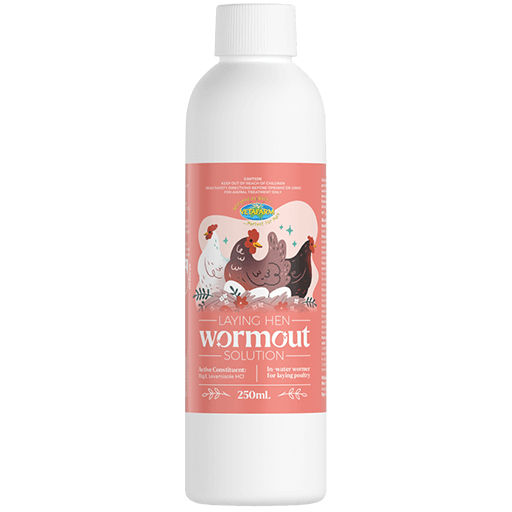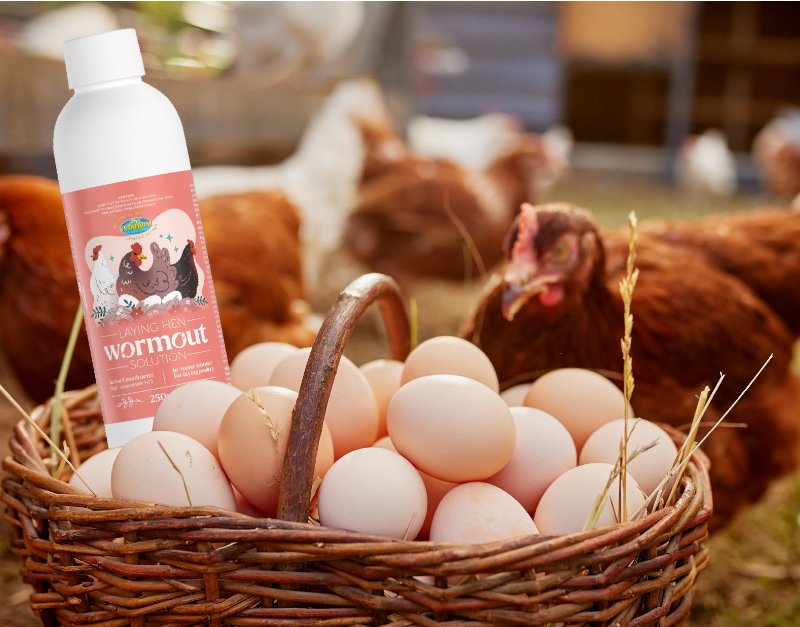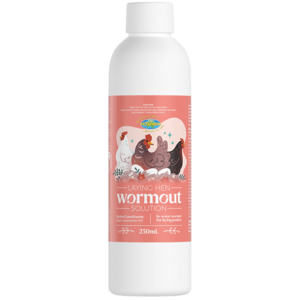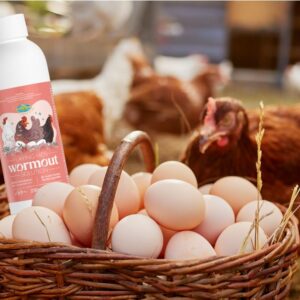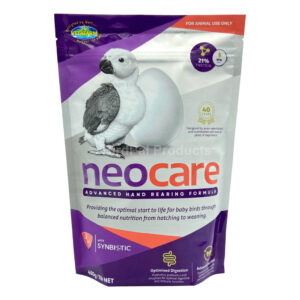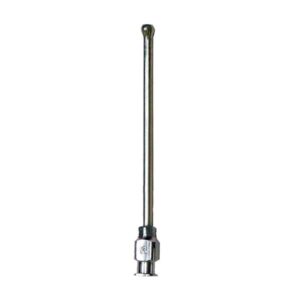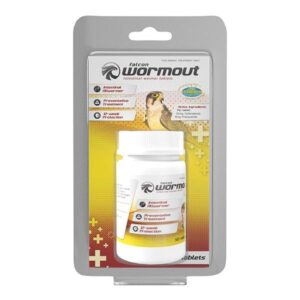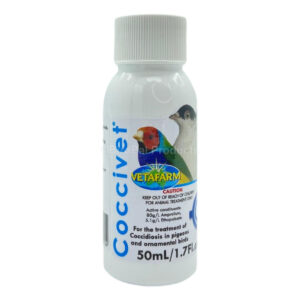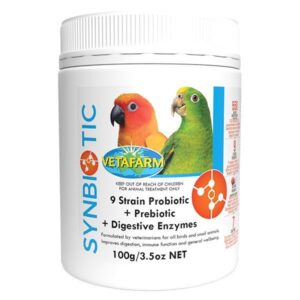No withholding period on eggs!
Worms are typically transmitted from bird to bird through the fecal-oral route. This is where worm eggs are excreted in droppings and then ingested by birds that scratch and peck at the soil, litter, or droppings. Ingestion of infected earthworms, slugs and other secondary hosts can also spread parasitic worms.
The most common intestinal worms that infect laying hens include large roundworm, caecal worm and hairworm. Roundworms, are the largest worms affecting poultry. These worms can cause intestinal impaction and fatalities in severe cases. Hairworms are small, thread-like, and barely visible to the naked eye, even small burdens can be pathogenic and can be fatal quite quickly. Caecal worms are short and white with a pointed tail, their eggs may remain viable for months in the environment.
Signs of worm infection may include reduced appetite, weight loss, pale combs due to anaemia and intermittent diarrhoea. Egg production may drop, with smaller eggs, pale yolks and fragile shells. In severe cases, worms can cause impactions or blockages, damage the intestinal wall of poultry and may even interfere with the chickens ability to absorb nutrients.
Regular treatment (once every 3 months) provides parasite control to assist in the prevention of potential health problems associated with parasite infestation. Vetafarm Laying Hen Wormout Solution provides simultaneous treatment of the sensitive strains of the three most important intestinal worms in laying hens: large roundworm (Ascaridia galli), caecal worm (Heterakis gallinae), and hairworm (Capillaria spp.).
Active ingredient
16 mg/mL Levamisole HCl
Dosage and Instructions
DO NOT USE less than 7 days before slaughter for human consumption.
Do not treat in extremely hot weather due to increased water consumption.
Dilute Laying Hen Wormout Solution with drinking water at a rate of 50mL (1.7 fl oz) solution per L (33.8 fl oz) of water. Repeat treatment once every three months (4 times per year). For maximum efficiency against worms, the medicated drinking water must be consumed in the shortest possible time. Water should be withheld from the birds 2 hours before nightfall. Medicated water should be supplied the following morning. Replace the medicated water with fresh water as soon as it is all consumed or after 8 hours. Medicated water remaining at the end of the treatment period is to be discarded and containers flushed out with fresh water.
For best results with medicated drinking water:
Administer medicated drinking water in the drinkers that the birds are accustomed to using.
Avoid treating on cold or wet days when normal water consumption is reduced.
Available Size
250ml (8.45 fl oz) and 500ml (16.9 fl oz)
